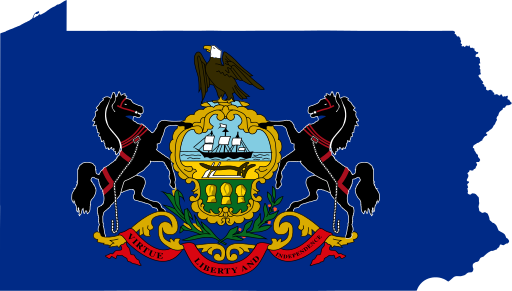Incumbent Karen Smith (D), Heather Reynolds (D), Dana Foley (D), Rick Haring (D), and Susan M. Gibson (D), the Democrats who ran as the Neighbors United for School Board slate of candidates, were elected to the Central Bucks School District school board in Bucks County, Pennsylvania, on Nov. 7, 2023. The election resulted in a 6-3 Democratic majority. Before the election, Republicans held a 6-3 majority. Five districts were up for election: Central Bucks Board of Directors Regions 1, 2, 3, 6, and 8.
The district had approximately 17,570 students during the 2021-2022 school year. As of October 2023, the district was the third largest in Pennsylvania.
Of the five regions up for election, Republicans represented three, while Democrats represented two. Republicans needed to win at least two of the five regions to maintain a majority. Democrats needed to win at least four of the five regions to secure a majority.
Smith, Reynolds, Foley, Haring, and Gibson were the Democrats who ran as the Neighbors United for School Board slate of candidates. They campaigned against the school board’s book and neutrality policies. On the slate’s website, the candidates said, “Central Bucks Schools should have elected school board directors who respect their citizen oversight responsibility. These directors should honor and uphold the mission of CBSD to provide all students with the academic and problem-solving skills essential for personal development, responsible citizenship, and lifelong learning.”
Incumbent Dana Hunter, Stephen Mass, Glenn Schloeffel, Aarati P. Martino, and Tony Arjona were the Republicans who ran as the Central Bucks Forward slate of candidates. On the slate’s website, the candidates said, “Every student deserves an education focused on reaching their full potential. Parents need to be full partners in that process, not bystanders. The school board is the place where we shape the blueprint for a bright future for every student. We do that with civility, respect, and professionalism. That’s our commitment.”
The election followed two noteworthy events. In July 2022, the board voted along partisan lines to allow parents to “challenge a book in a school library if it depicts implied or actual nudity or ‘sexual acts’.” A committee of librarians, teachers, and administrators then determines if the book should remain in school libraries. In January 2023, the board voted along partisan lines for a neutrality policy, which forbids district employees from advocating to students on “‘partisan, political, or social policy matters,’ or display any ‘flag, banner, poster, sign, sticker, pin, button, insignia, paraphernalia, photograph, or other similar material that advocates concerning any partisan, political, or social policy issue.’”
Hunter voted in favor of both policies and said, “A major mischaracterization of the proposed library policy is that it’s a book ban. That is unequivocally untrue. The policy is intended to prioritize materials that support and enrich curriculum and/or students’ personal interests and learning. The policy states that books should be appropriate for the subject area and for the age, intellectual development and ability level of the students for whom the material is selected.” She said the neutrality policy bans “Blue Lives Matter flags, anti-abortion flags or any other flags that advocate on social policy issues,” adding that “[t]his policy will allow teachers and students to focus on learning in an environment of mutual respect.”
Smith voted against both policies and said, “I was deeply disappointed by the passage of the library book policy. … Unfortunately, even the overall literary merit of a book does not prevent it from being removed from our libraries under this policy. The books being challenged are also disproportionately representative of LGBTQ authors or characters or BIPOC authors or characters.” She said of the neutrality policy, “A classroom can never be a neutral place. Instead, we should be striving to teach our students to navigate a world of differences and not sterilize our schools. The only neutral walls would be blank walls. Unless we are going to have nothing on the walls, this goal of neutrality is a fallacy.”
Elected school board members in Pennsylvania are elected via partisan elections. As of 2022, all school boards except the Philadelphia School District Board of Education had elected members. The mayor of Philadelphia appoints, and the city council confirms, the nine board members. Over 97% of local school board members in the United States are elected, while board members in a small number of districts are appointed.
Additional reading:


